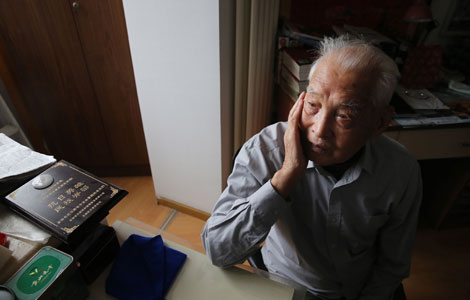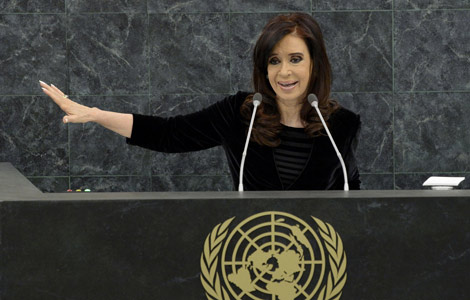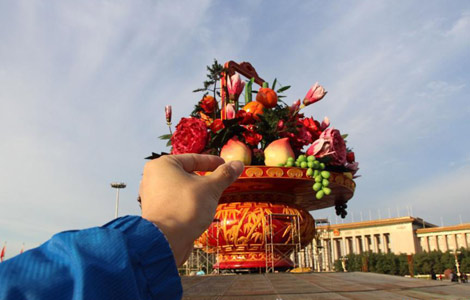Station's priorities outlined
Updated: 2013-09-26 01:05
By WANG QIAN (China Daily)
|
|||||||||||
Scientists to examine effects of space flight, work to create new medicine
China's future space station, which is slated for completion in a decade, will work on a project to develop so-called space medicine, a senior official said at the 64th International Astronautical Congress on Wednesday in Beijing.
The Nyu Wa Project will study the effects of space flight on humans, said Li Yinghui, director at the China Astronaut Research and Training Center, and will be open to foreign scientists and astronauts.
Specifically, the planned space station project will study the effects of long-term weight loss in space, the effects of radiation on astronauts, in-orbit medical monitoring and the application of traditional Chinese medicine in space, Li added.
Nyu Wa is a goddess in ancient Chinese mythology who can create humans and repair the sky. Li said the Nyu Wa project will play an important role in China's space medicine.
When the space station is complete by 2023, "the (space medicine) project can be launched", Li said.
She said other details, such as which countries will be invited to work on the space medicine project, are still being discussed.
China's development of space medicine is still in its early stages, but a series of medical experiments have been carried out in recent space missions.
In the Shenzhou IX mission last year, experimental medical research, including studying the physical impact of space flight on astronauts, was conducted, according to China's Manned Space Agency.
Zhao Baixiao, dean of the School of Acupuncture-Moxibustion and Tuina at Beijing University of Chinese Medicine, said in past space missions, traditional Chinese medicine, including acupuncture and massage therapy, have been used for Chinese astronauts. TCM has been demonstrated as an effective and potential therapy for weight loss in space flight.
"Space medicine is not only good for the health of astronauts, but also has great potential for improving the health of people on Earth," Chen Shanguang, director of the Astronaut Center of China, said at the congress.
Chen also called for international cooperation in the field of space medicine.
Jeffery Sutton, director of the Center for Space Medicine at Baylor College of Medicine in Houston, Texas, agreed that international cooperation is key to implementing large-scale research programs in space life sciences and medical sciences.
The 64th International Astronautical Congress in Beijing ends this Friday and has been held every year since 1950.
Today's Top News
Street vendor executed for fatal stabbings
208 killed as quake hits SW Pakistan
China to inaugurate Shanghai FTZ on Sept 29
China expects to complete space station by 2023
China's investment a 'job-saver' in Europe
UN General Assembly starts debate
China aims to attract more foreign students
Company head admits bribe charges
Hot Topics
Lunar probe , China growth forecasts, Emission rules get tougher, China seen through 'colored lens', International board,
Editor's Picks

|

|

|

|

|

|





